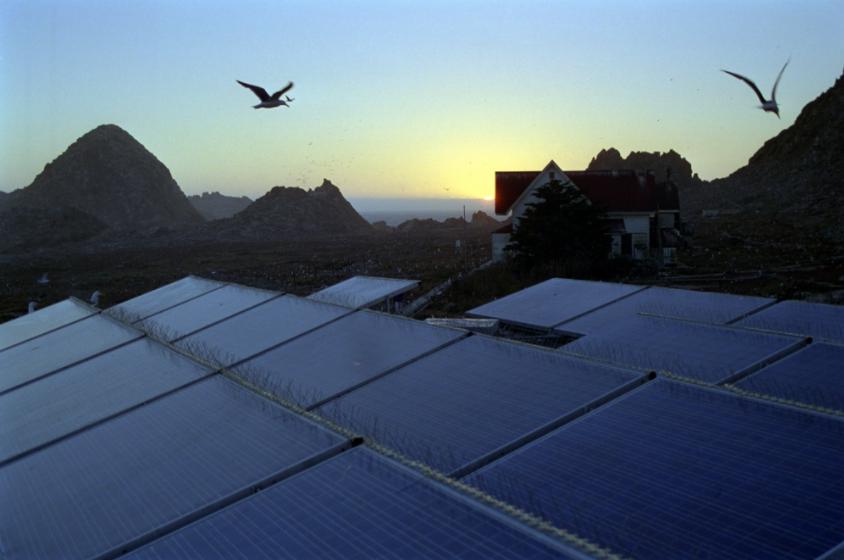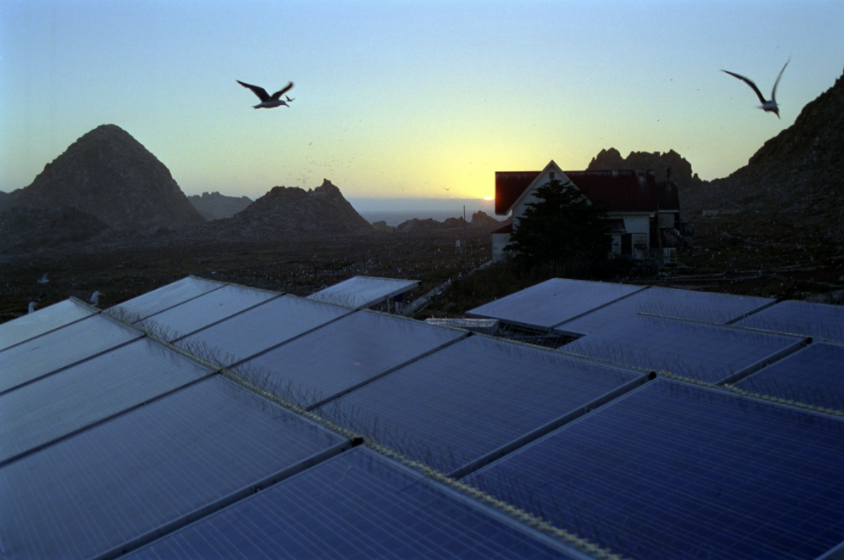Despite having a huge chunk of money in the bank and freehold title to 170 square kilometres of land in the east of Tennant Creek, members of Munungurra Aboriginal Corporation could not afford to comfortably live in their country of birth and origin.
The high cost of providing electricity to this tiny, off-grid community in the remote place slowed down the growth of its economy. The corporation got no water or power supply since they weren’t connected to the grid and hence had to contract two diesel generators to power up two small communities called the aboriginal community and the Torres Strait Islanders’ Community where two in eight houses are permanently occupied.
“We originally had no power and no water, because we’re not on a grid. We put houses on it, we put generators on it. But still that wasn’t enough,” Mr. Smith, the corporation’s chief executive, said.
“Whilst it gave people reliable power with two houses pulling off a generator, we’d be going through $600 to $700 a week in diesel,” he said.
“Because we have no employment on community, people weren’t able to pay for the diesel. So they decided to live in town, look after their kids at school, get houses in town, and just go on the dole.”
Following Mr. Smith’s initiative, the Munungurra Aboriginal Corporation leased to the community a solar energy system at a cost of more than $200,000 from Indigenous Business Australia (IBA), eventually switching off its diesel generator.
IBA is a federal government funded organization that fosters economic independence for both Aboriginal and Torres Strait Islander people.
Solar adoption brings huge economic, social benefits
Within three months of using solar, the community’s electricity bill fell by more than half, its population increased from three to 40, a school and local jobs sprang up.
Ray McInnes from Indigenous Business Australia said his organisation had never considered solar PV system projects before Smith approached them and requested IBA to find a suitable solar energy provider. Mr. McInnes came across Allgrid Energy, a Queensland-based Indigenous power company.
Allgrid Energy’s CEO Ray Pratt then recommended a panel and battery storage system for the community.
“The sun hits your solar panel, which is on the roof, and creates energy,” Mr. Pratt said. “The community will either use that energy during the day, and energy that they’re not using will get stored in the batteries, and they’ll use that energy at night-time when the sun goes down.”
IBA purchased the Allgrid solar PV system and leased it to Munungurra Aboriginal Corporation.
Graeme Smith acknowledged that leasing the solar system saved the corporation the hassle of making large capital withdraws and gave the community an amazing opportunity to change along advancements in technology.
“We can go back and renew our lease upon the latest technology that comes in, so we’re not stuck with the system we’ve got,” Mr. Smith added.
Revenue from the community’s investment portfolios will be used to pay the leasing costs until the corporation finally owns the power system. With the availability of more affordable power, the community has been brightened up and transformed beyond anyone’s imaginations.
“With solar and with [population] numbers we were able to get services. We’ve got School of the Air now because we’ve got 15 kids,” Mr. Smith explained.
The increased population in the community has also generated jobs.
Munungurra Aboriginal Corporation has also won two federal government contracts — one to manage the Work for the Dole programs and another to provide housing repairs and maintenance.
Mr. McInnes strongly believes Munungurra’s experience will be emulated by others in the region.
“After one we will do two, three, four [communities], he said. “There’s opportunities for very similar outcomes for remote communities that are reliant on diesel — it’s about saving money.”



